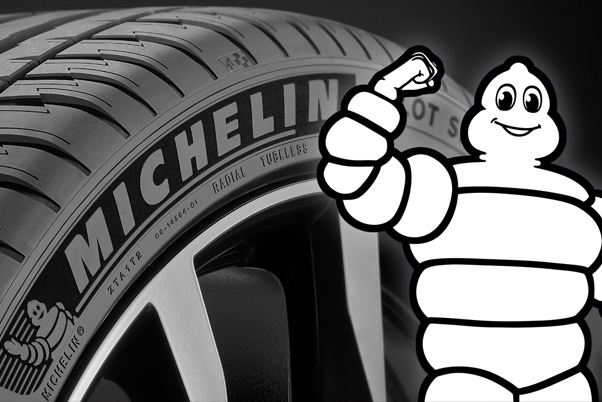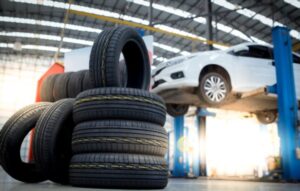Michelin, a leading global tire manufacturer, is renowned for producing high-quality, reliable tires suitable for various driving needs and vehicle types. This comprehensive guide delves into the many aspects of Michelin Tires, examining their product range, performance, durability, safety features, and more to provide an in-depth analysis of their offerings. By the end of this guide, you will have a thorough understanding of Michelin Tires and their suitability for your driving needs.
Product Range
Michelin’s extensive product range caters to diverse driving needs and vehicle types. Their lineup is designed to provide optimal performance, safety, and comfort in various driving conditions. The main categories of Michelin tires include:
- All-season tires: Michelin’s all-season tires, such as the Defender T+H and Premier A/S, provide drivers with a comfortable, quiet ride and good traction throughout the year. These tires are designed for fuel efficiency and long-lasting performance.
- Performance tires: Michelin offers high-performance tires, like the Pilot Sport series, for sports cars and performance-oriented vehicles. These tires deliver exceptional handling, grip, and road contact for optimal control, even at high speeds.
- Light truck and SUV tires: Michelin’s range of light truck and SUV tires, including the LTX and Latitude series, are designed to provide enhanced traction, durability, and handling. These tires are suitable for various terrains and can withstand heavy loads.
- Winter tires: Michelin’s X-Ice and Latitude X-Ice series of winter tires are engineered to perform well in cold weather conditions, offering excellent traction, control, and safety on snow and ice-covered roads.
Performance
Michelin is known for its commitment to producing high-quality tires that offer outstanding performance. They invest heavily in research and development to create innovative tire designs and utilize cutting-edge technologies. Michelin tires are known for their excellent grip, handling, and stability in various driving conditions, including dry, wet, or snowy roads. Additionally, their tires deliver a comfortable and quiet ride, ensuring a pleasant driving experience.
Durability and Longevity
Michelin is renowned for manufacturing durable and long-lasting tires. They use high-quality materials and advanced technologies, such as their proprietary EverGrip compound, which helps ensure even tread wear and prolongs the lifespan of their tires. Many Michelin tire models come with a treadwear warranty, providing added peace of mind for customers.
Proper tire maintenance, including regular rotation, alignment, and maintaining correct tire pressure, can further extend the lifespan of Michelin tires. It is essential to consult your vehicle owner’s manual and follow the recommended tire maintenance schedule to maximize the longevity and performance of your tires.
Safety Features
Safety is a top priority for Michelin, and they continuously develop and incorporate advanced safety features into their tires. Some of these features include:
- Run-flat technology: Michelin’s ZP (Zero Pressure) tires are designed with run-flat technology, allowing drivers to continue driving for up to 50 miles at speeds up to 50 mph after a puncture, providing time to reach a safe location or service station.
- Advanced tread patterns: Michelin tires feature innovative tread patterns that enhance grip, optimize water evacuation, and improve handling in various driving conditions.
- Noise-reducing technology: Michelin utilizes noise-reducing technologies, such as Comfort Control Technology, to minimize road noise and create a more comfortable driving experience.
- Enhanced sidewall construction: Michelin tires incorporate advanced sidewall construction techniques, which provide added strength and stability, improving handling and reducing the risk of blowouts.
Price and Value
Michelin offers a wide range of tire options at various price points, catering to different budgets and driving needs. While they may not be the most affordable option in the market, the quality, performance, and durability of Michelin tires make them a solid investment. The longer lifespan and innovative technologies incorporated into their tires provide added value, making them a smart choice for discerning drivers.
Environmental Impact
Michelin is committed to minimizing the environmental impact of their tires and manufacturing processes. They have established a comprehensive sustainability framework and set ambitious targets to reduce their carbon footprint. Some of their environmental initiatives include:
- Fuel-efficient tires: Michelin’s Energy Saver series is designed to improve fuel efficiency, reducing CO2 emissions and providing cost savings for drivers.
- Sustainable materials: Michelin is researching and developing innovative materials, such as bio-sourced materials and recycling technologies, to create more sustainable and environmentally friendly tires.
- Waste reduction: Michelin has implemented various waste reduction initiatives in their manufacturing processes, aiming to achieve a “zero waste to landfill” status across their operations.
- Recycling programs: Michelin actively promotes tire recycling and is involved in developing technologies for recycling end-of-life tires.
Testimonials and Expert Opinions
Michelin tires have received positive feedback from both industry experts and everyday drivers. Many testimonials praise the brand’s performance, durability, and safety features. Michelin tires are often featured in top-ranked tire lists and receive high ratings in professional tire tests.
Awards and Accolades
Michelin has received numerous awards and accolades for their tire innovations and commitment to quality. Some of their notable achievements include:
- J.D. Power Tire Customer Satisfaction Studies: Michelin consistently ranks highly in J.D. Power’s annual Tire Customer Satisfaction Studies, demonstrating their commitment to customer satisfaction and product quality.
- Original equipment manufacturer (OEM) partnerships: Michelin has forged strong partnerships with leading vehicle manufacturers, such as Audi, BMW, and Tesla, who trust Michelin to provide high-quality tires for their vehicles.
Conclusion: Are Michelin Tires Good?
Based on the comprehensive analysis provided in this guide, it is evident that Michelin tires are of high quality, offering exceptional performance, durability, and safety features. They cater to a wide range of driving needs and provide excellent value for the investment.
Recommendations for Specific Drivers and Vehicles
Michelin offers an extensive range of tires suitable for various drivers and vehicles. To determine the best Michelin tires for your specific needs, consider the following recommendations:
- For daily commuting and all-season performance: The Defender T+H or Premier A/S are excellent options, providing a comfortable ride, good traction, and fuel efficiency.
- For high-performance vehicles and sports cars: The Pilot Sport series is designed to deliver exceptional handling, grip, and road contact for optimal control.
- For light trucks, SUVs, and off-road vehicles: The LTX and Latitude series provide enhanced traction, durability, and handling, making them suitable for various terrains and heavy loads.
- For winter driving conditions: The X-Ice and Latitude X-Ice series offer excellent traction, control, and safety on snow and ice-covered roads.
In conclusion, Michelin tires are a reliable and high-quality option for drivers seeking performance, durability, and value. By carefully considering your driving needs, preferences, and budget, you can confidently choose the right Michelin tires for your vehicle.
Additional Tips for Choosing the Right Michelin Tires
To further ensure that you select the best Michelin tires for your specific needs, consider the following tips:
- Consult your vehicle owner’s manual: Your vehicle owner’s manual provides crucial information on the recommended tire size, type, and performance specifications for your vehicle. Always adhere to the manufacturer’s recommendations to ensure optimal performance, safety, and compatibility.
- Research and read reviews: Conduct thorough research on the specific Michelin tire models that align with your driving needs and preferences. Reading customer reviews and expert opinions can provide valuable insights into the real-world performance and satisfaction of each tire model.
- Consult a professional: If you’re unsure about which Michelin tire model is best for your vehicle, consult a professional tire dealer or mechanic. They can provide tailored recommendations based on your specific vehicle and driving requirements.
- Consider local driving conditions: Keep in mind the climate and road conditions in your area when choosing Michelin tires. For instance, if you live in a region with harsh winters, investing in a set of X-Ice or Latitude X-Ice winter tires can significantly improve your driving safety and experience during the colder months.
- Balance cost and quality: While budget is an essential factor when purchasing tires, it’s crucial not to compromise on quality and safety. Michelin offers a range of tire options at different price points, allowing you to find a balance between cost and performance that suits your needs.
By considering these recommendations and the information provided in this comprehensive guide, you can make an informed decision when choosing Michelin tires for your vehicle. With their exceptional performance, durability, and safety features, Michelin tires are a reliable and worthwhile investment for discerning drivers.


